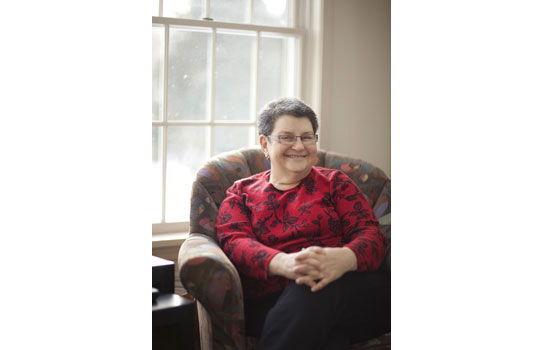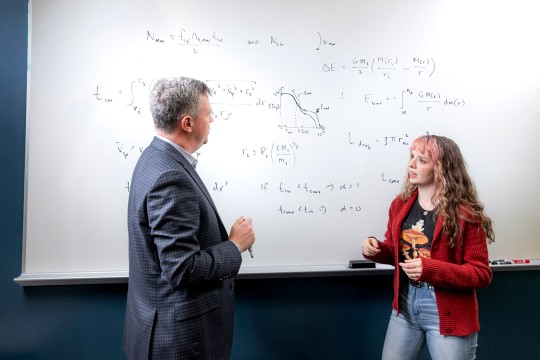Meet the Poster Families from RIT’s United Way Campaign
At the heart of a pledge is knowing you can help
Jillian Guyette
Ellie Rosenfield
H-O-P-E is a four-letter word that most people use after receiving help from a United Way-supported program.
Like a good neighbor, United Way responds to every S.O.S. in the community—whether it’s a house fire, drug dependencies, adoptions, daycare, health issues, hospice care, counseling or family support.
And despite a still-recovering economy and a general downturn in corporate giving, Rochester Institute of Technology has consistently surpassed its yearly goals says Lynn Rowoth, RIT’s United Way campaign coordinator who works as associate director of special events and conferences for RIT’s Government and Community Relations.
“This is truly a campus-wide effort,” she says. “Last year the RIT community did an incredible job in surpassing our goal of $400,000, raising a grand total of $412,000, which not only is the highest amount ever raised in the campaign but also exceeded the amount raised the year before by 3 percent as well.
“Our 2010 goal is set at $415,000, which we hope to achieve through pledges and support of our special events.”
RIT’s community spirit has been a huge factor for two individuals whose faces you’ve seen on posters around campus during the campaign. Their personal journeys, although on opposite sides of the spectrum, are equally poignant and courageous.
Ellie Rosenfield was hoping to “kick her cancer to the curb” with an experimental drug that would slow down the growth of her tumors and/or reduce the size of them potentially returning her to the bone marrow phase of treatment. Sadly, the associate dean for student and academic services at RIT’s National Technical Institute passed away on March 7.
But she leaves a legacy of “hope” for others who have benefited from support at United Way designated donor agencies like Gilda’s Club Rochester.
As Rosenfield said in an interview, and later from her blog, “The group support at Gilda’s has been invaluable in my marathon fight against cancer, and the encouragement from my extended family at RIT has been equally overwhelming.
“I am struck by the fact that there are just no guarantees in life,” she said. “I have come to know how important self-honesty is. I encourage each of you to take this opportunity to reflect on things in your life that you would regret if you needed to meet unexpectedly with the palliative care team—and to act to fix what you can. I know . . . I’ll be in good hands no matter what the outcome.”
Hope was also a big factor when Matthew Reynell and Jaime Burgos first met their future son at a Hillside Family of Agencies residence—after Children Awaiting Parents jumpstarted their initial introduction.
They must have made a great first impression—because 8-year-old James jumped onto Jaime’s lap and asked, “Are you going to be my new daddy?”
“That clinched it,” says Reynell, senior financial and information specialist at RIT’s Office of Financial Aid and Scholarships. “We later called and said, ‘We can’t go on without seeing him.’”
Although adopting an older child with set behavior patterns can be daunting, Reynell and Burgos knew James’ trauma—living in several foster homes and feeling “unwanted and unloved”—was at the root of his emotional disturbances.
“We knew we would be testing the waters and were prepared,” Reynell explains. “Through the ongoing programs, caring staff and adoption support received from both Hillside and CAP (donor-designated agencies of United Way), James has gone from temper tantrums and failing grades to reading books, making friends and ear-to-ear smiles.”
“Sometimes I’ll say, ‘What am I going to do with you’ and James would always answer, ‘Keep me’—like we were going to send him away if he misbehaved.
“But now he just laughs and says, ‘Oh, Dad.’”












